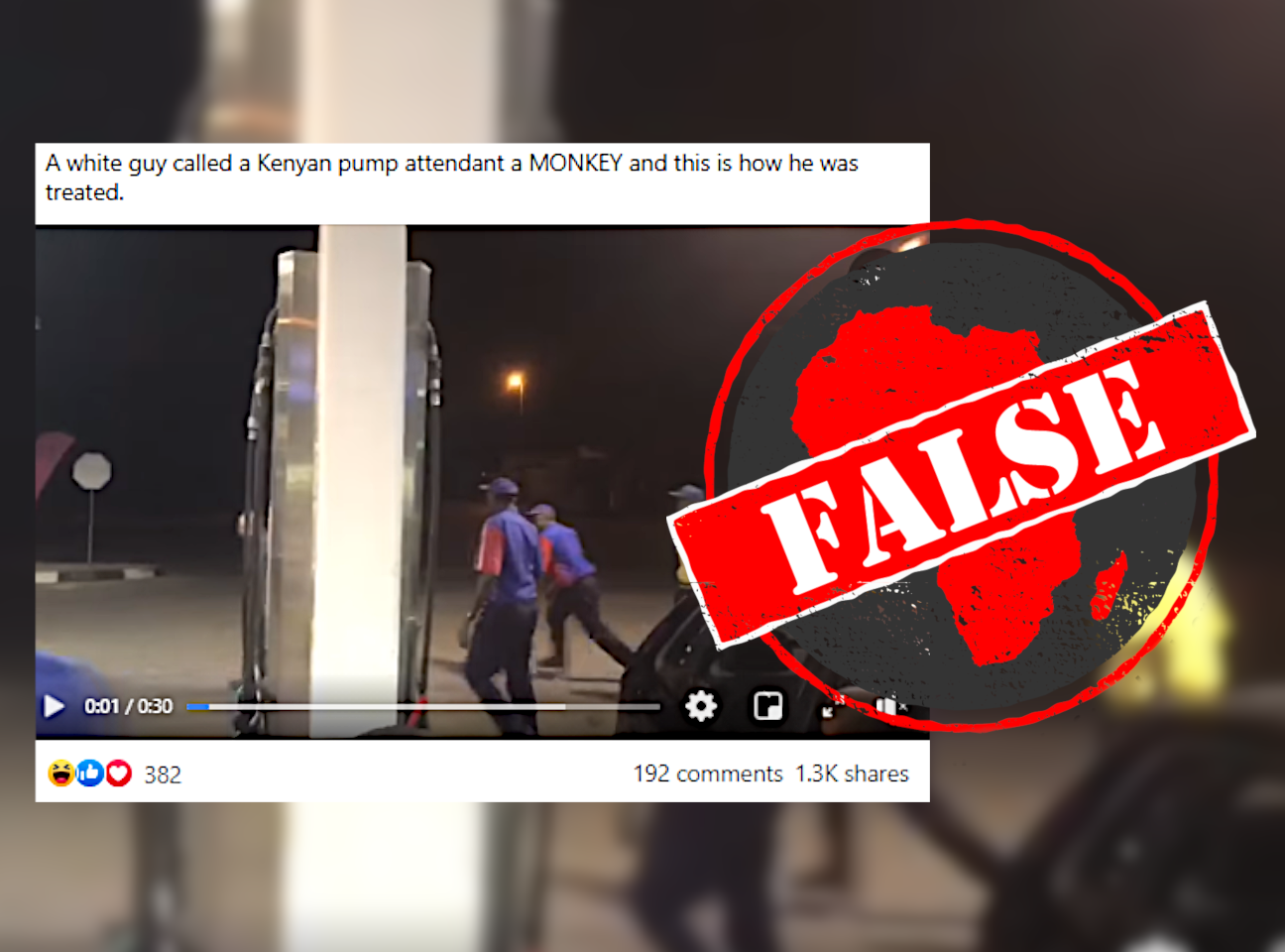A video showing a white man being beaten by a group of black fuel attendants is doing the rounds on Facebook.
“A white guy called a Kenyan pump attendant a MONKEY and this is how he was treated,” the caption reads.
The 30-second clip shows the man being chased around a petrol station by four other men, who hit him with a whip and a long stick. As the man dodges the lashes and attempts to flee, he is knocked down by a slow-moving vehicle. The man’s heel appears to get stuck in the vehicle’s front wheel. The vehicle reverses, he rises and the video ends.
The video was also shared in South Africa with a different description. In one post, it is claimed that the white man “called South African fuel attendants ‘black monkey’ and got a fair share of monkey treatment”.
It has been widely shared across Facebook with different narratives. But what is the real story here? We checked.

At the video’s 10-second mark, the Engen logo can be seen on the petrol station building. Africa Check emailed Engen to ask about the video.
“The incident occurred in early January 2017 at an Engen service station in Windhoek, Namibia,” Engen external communications manager Gavin Smith told us. “The man allegedly refused to pay for services and assaulted an attendant at the petrol station.”
Smith also sent a link to a report on the incident on the Citizen website. – Grace Gichuhi
“A white guy called a Kenyan pump attendant a MONKEY and this is how he was treated,” the caption reads.
The 30-second clip shows the man being chased around a petrol station by four other men, who hit him with a whip and a long stick. As the man dodges the lashes and attempts to flee, he is knocked down by a slow-moving vehicle. The man’s heel appears to get stuck in the vehicle’s front wheel. The vehicle reverses, he rises and the video ends.
The video was also shared in South Africa with a different description. In one post, it is claimed that the white man “called South African fuel attendants ‘black monkey’ and got a fair share of monkey treatment”.
It has been widely shared across Facebook with different narratives. But what is the real story here? We checked.

Engen station in Namibia
At the video’s 10-second mark, the Engen logo can be seen on the petrol station building. Africa Check emailed Engen to ask about the video.
“The incident occurred in early January 2017 at an Engen service station in Windhoek, Namibia,” Engen external communications manager Gavin Smith told us. “The man allegedly refused to pay for services and assaulted an attendant at the petrol station.”
Smith also sent a link to a report on the incident on the Citizen website. – Grace Gichuhi
Republish our content for free
For publishers: what to do if your post is rated false
A fact-checker has rated your Facebook or Instagram post as “false”, “altered”, “partly false” or “missing context”. This could have serious consequences. What do you do?
Click on our guide for the steps you should follow.
Publishers guideAfrica Check teams up with Facebook
Africa Check is a partner in Meta's third-party fact-checking programme to help stop the spread of false information on social media.
The content we rate as “false” will be downgraded on Facebook and Instagram. This means fewer people will see it.
You can also help identify false information on Facebook. This guide explains how.


Add new comment